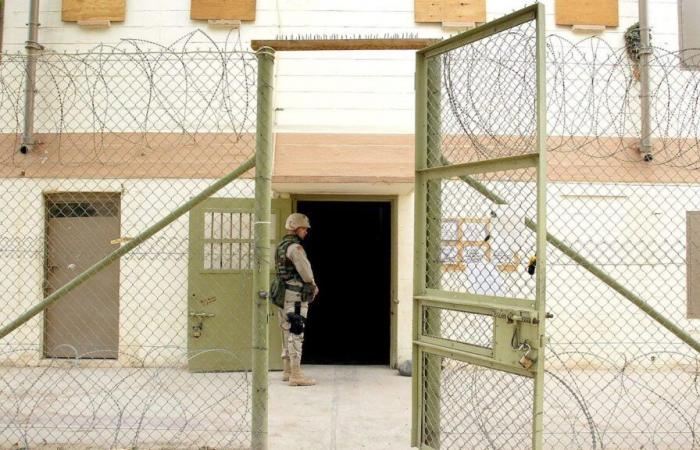Twenty years later, their stories were finally heard by the courts. Three former detainees of the United States army, arrested during the latter’s incursion into Iraq to wage a “war on terrorism” in 2003, managed to win their case: the private firm Caci International was found guilty of « tortures » and of “cruel, inhuman or degrading treatment”this Tuesday, November 12. The firm was ordered by a Virginia state jury to pay $14 million per victim, for a total of $42 million.
A victory for the NGO Center for Constitutional Rights (CCR), which represented the three plaintiffs. “Our clients have courageously fought for 16 years to seek redress for the horrors they suffered, against every obstacle this massive private military contractor has put in their way.”recalled the legal director of the CCR, Baher Azmy.
Humiliated and mistreated by US soldiers
Based in the state of Virginia, founded in 1962, Caci International provided interrogators and subcontracted the processing of prisoners for the United States military throughout the 2000s. The company, listed on Wall Street (New York Stock Exchange) and which employs more than 20,000 employees, was notably responsible for the Abu Ghraib detention center, located near Baghdad and infamous for its inhumane conditions of detention, between unsanitary conditions and acts of torture. The dissemination, in 2004, of photos showing Abu Ghraib detainees humiliated and mistreated by U.S. soldiers triggered worldwide indignation, further weakening the position of the George W. Bush administration, already very criticized for its desire to invade Iraq.
The decision of the State of Virginia – unprecedented for such a case – comes following long years of legal battles. In 2014, after eleven soldiers had already been sentenced by court martial to prison terms from 2004 to 2006, a federal appeals court finally authorized legal proceedings against Caci International. To do this, the plaintiffs invoked the Alien Tort Statute (ATS), a federal law dating from 1789 which authorizes foreigners who are victims of violations of international law to be heard before US courts. The former detainees thus asserted that the soldiers responsible for interrogating them were de facto under the orders of private interrogators.
Threatened with dogs, deprived of food, beaten…
At Abu Ghraib prison, nearly half of the interrogators involved in violence worked for private companies, including Caci. The latter, in defense, argued that the US military exercised total control over these interrogations, and therefore, over the methods used.
The stories of the three plaintiffs – a school principal, a fruit seller and Al Jazeera journalist Salah Hasan Nusaif al-Ejaili – represent a fresh reminder of the violence in the region following the US invasion. United. Salah Hasan Nusaif Al-Ejaili, for example, was imprisoned in Abu Ghraib for almost two months. Among the tortures suffered, the journalist recounts being kept naked, threatened with dogs, deprived of food, beaten and locked in an isolated cell in conditions of sensory deprivation, by the interrogators. “Today is a great day for me and for justice”he rejoiced, in a press release from the CCR, published following the decision of the State of Virginia.
The ex-detainees interviewed by the NGO accuse Caci employees of numerous acts of torture, carried out over several months on each detainee: rape, physical activities to the point of exhaustion, deprivation of food and oxygen, beatings with sticks. in the genitals, Taser gun shots in the head. “This case is part of our efforts to ensure that those responsible for torture and other serious violations of international law arising from the so-called ‘war on terror’ and the invasion of Iraq must be held accountable for their actions.recalled the CCR in a press release. In the meantime, new testimonies continue to come to light.
Before leaving, one last thing…
Unlike 90% of French media today, Humanity does not depend on large groups or billionaires. This means that:
- we bring you unbiased, uncompromising information. But also that
- we don’t have not the financial means that other media benefit from.
Independent and quality information has a cost. Pay it.
I want to know more






